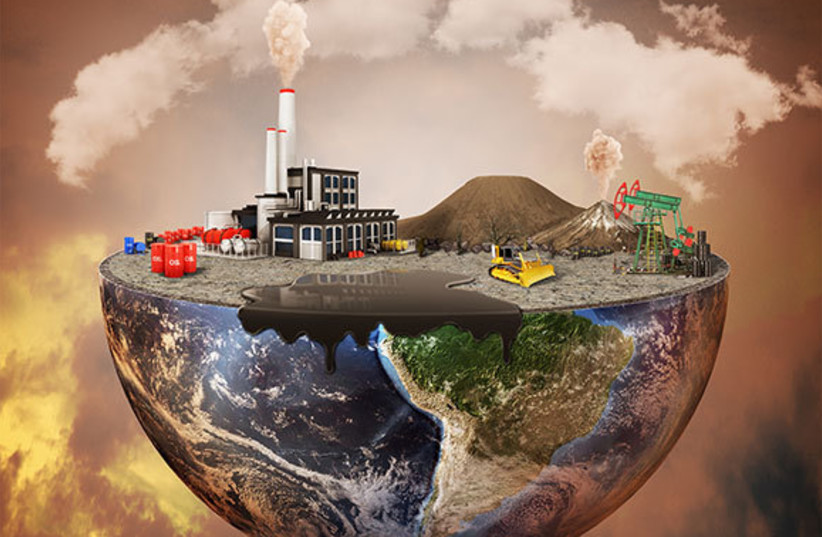COVID-19 patients exposed to pollution spent an average of four extra days in the hospital - the equivalent of being a decade older, a new study published this month in the European Respiratory Journal shows.
On the other hand, reducing exposure to pollution was between 40% and 80% as effective at reducing patients’ length of hospitalization as some of the best available treatments, according to a report by a team of Belgian and Danish researchers.
The average hospital stay was 16.9 days.
“These results show how air pollution can compromise our immune system and leave us vulnerable to COVID-19 and other respiratory infections,” said Dr. Zorana Jovanovic Andersen from the University of Copenhagen, Denmark. “Reduction of air pollution should be at the heart of preventive measures for current and future pandemics, as well as a strategy for dealing with seasonal influenza pandemics. Cleaner air would make populations more resilient to respiratory infections, seasonal epidemics and major pandemics in the future.”
To arrive at their results, the team recruited 328 patients hospitalized with COVID-19 at two Belgian hospitals between May 2020 and March 2021, including 29% treated in an intensive care unit. The patients were between 20 and 98 years old (average 66), tested positive for the virus using a PCR gold-standard test and were not involved in any other clinical intervention studies. Moreover, they also had not moved during the last three years.

“These results show how air pollution can compromise our immune system and leave us vulnerable to COVID-19 and other respiratory infections,”
Dr. Zorana Jovanovic Andersen from the University of Copenhagen, Denmark
The researchers looked at the level of three pollutants at the patients’ home addresses before they were hospitalized: nitrogen dioxide (NO2), soot (black carbon) and particulate matter (PM2.5 and PM10). They also measured the amount of black carbon in the patients’ blood.
Age, sex and body-mass index were taken into account
The result was that pollution-exposed COVID-19 patients experienced more adverse outcomes than their non-exposed counterparts.
“Using average exposures calculated for short-term (two days and seven days before admission) and long-term exposures, we observed that both short- and long-term exposures to PM2.5, PM10 and NO2 were associated with increases in the duration of hospitalization,” the researchers wrote. “On average, the duration of hospitalization increased by three to five days for an … increase in short-term exposure seven days before admission.”
Moreover, they added that higher levels of soot in patients’ blood increased the likelihood of ICU admission by 36%.
Men were more impacted than women from exposure to PM2.5, PM10 and NO2, according to the research. Moreover, exposure to pollution the week before hospitalization was found to have the most significant impact on the duration of hospitalization.
The research noted several reasons why pollution could have this negative impact, such as that air pollution could exacerbate other medical issues like pre-existing respiratory conditions often associated with severe COVID. Also, air pollution could cause immunosuppression.
“The public health and clinical significance of our findings should not be understated,” the team wrote in their paper.
“We are finding more and more evidence that breathing polluted air is contributing to lung diseases, including infections,” added Prof. Charlotte Suppli Ulrik from the University of Copenhagen, Denmark, who was not involved in the research. “These studies show how exposure to air pollution at levels common in cities around Europe increased people’s risk of contracting COVID-19, becoming seriously ill and dying.
“The research also indicates how pollution exacerbated the strain on our hospitals and health services,” she continued. “Although the COVID-19 global health emergency is over, the impact of pollution on our health is continuing, and we need governments to take action for the sake of our health and our health services.”
